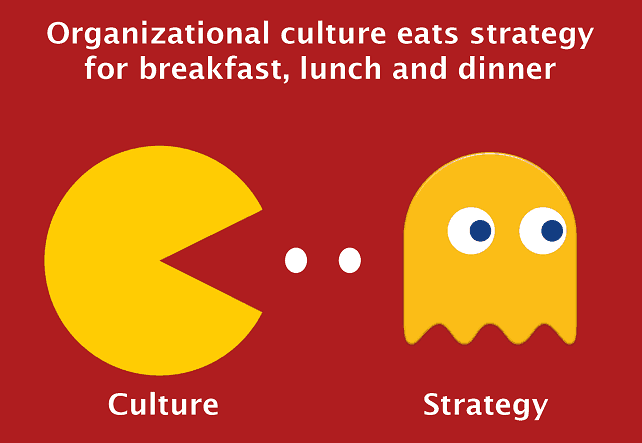 A few weeks ago a leaked memo from comedian and TV host Steve Harvey sparked a tidal wave of response on social media. I don't want to pile on Harvey. Enough of that has been done, and he's had a pretty rough year after the Miss Universe fiasco. But it goes without saying that his memo caught the attention of people in leadership. In it, he basically told his staff to not bother him anymore, and to not catch him off guard or try to approach him without an appointment. The most telling line in it was "It is for the good of my personal life and enjoyment." Unfortunately, it's too easy for us in leadership to wall ourselves off from those around us. Life gets busy. Deadlines approach. The never-ending demands and cycles of ministry require us to give constant attention to preparation, study, and detail. Because you'll wear a number of hats in ministry, you can find yourself being frustrated by the "interruptions" that can happen.
But unlike Harvey who puts up walls for the protection of "his" time, in ministry it's really not your time after all - it's God's. And we don't get the benefit of demanding walls around what's not really ours to start with. Knocks at the door, hallway conversations, prayer requests, and late evening phone calls are opportunities, not interruptions. Yes it means you won't get done what you'd hoped for. That's where you depend on God to provide during these Divine Appointments. Rather than wall your time, manage it and block it. Communicate with your team - Sometimes you'll need to be off the grid for lengthy prep time or to really focus on a project. Or you might have a high priority meeting. Communicate with your team, especially your assistant. That way you're not "unavailable," you're engaged somewhere else. Embrace the flexibility - Unlike many other jobs, we don't have a time clock. The bummer is that you're always "on call" but the perk is that you have a lot of flexibility in your schedule. Take advantage of that. I'm writing this in my living room before leaving for a meeting. Guard your time loosely - It's a reality that in ministry so many deflect responsibility because "it interrupts family time." That's a hard sell because we ask our volunteers to work their regular jobs, invest in their families, and give time for ministry. When we guard our time loosely, we acknowledge that there will be times that there are cancelled plans because of the unique demands of our calling. Again, embrace the flexibility. One of my seminary professors shared his key: whenever he did a funeral, he'd use the honorarium to take his family out for a fun day. It got to where his kids wanted him to do more funerals because it meant they'd go to Chuck-E-Cheese! Be quick to pray - Last week I had a drop-in that ended up with a gut-wrenching story and many tears shed. When you find yourself caught, work on building the discipline of praying before. You never know what you might be able to do in those moments. Use your vacation time - I say this to churches too, make sure your ministry leaders have generous vacation time and that they use it each year. There's no telling how many thousands of unused days there are in ministry. And the results are likely contributing to the rise of burnout. When you don't rest, you're telling God you have it under control and don't need Him to work when you're not. The Sabbath is for our good. And that Sabbath includes time away, when you're really away.
2 Comments
 It's popping up everywhere on social media: time to dust off the Academic Regalia, wear a pointy hat, walk across a stage, and get a diploma. Graduation season is upon us. Thousands will make the long walk to shake hands and receive the reward of their labor. They could be high school graduates making the first step, college graduates balancing family and work responsibility, people entering their professional world with advanced degrees. Congratulations class of 2017. Especially to those of you who are leaving the relative safety and security of high school and moving into college. You're entering the stage of life where 4 years will shape the next 40 of your life. So here's my wisdom: 1. Get Connected to a Church - When you arrive on campus you'll find sign ups, rush weeks, season ticket lists, and a number of things competing for your attention, spare time, and your meal card. Make sure the first thing you do is get connected with a church home away from home. Over the summer look up churches in the area, contact a campus ministry and begin getting to know other believers on your campus. This church away from home will be a rock for you during these years, will provide you a sense of community, and if you're lucky will keep you fed! 2. Don't Bomb Money - It could be for some new gadget, or a credit card application (true story my first credit card came from someone offering me a free t-shirt), or a ridiculous student loan. Be wise with the money you have, whether it's your scholarship or your meal plan. The easiest way college students lose money is with credit cards. You're easy prey for these, and the promise of buy-now-pay-later is almost too much. But avoid the debt trap if at all possible. 3. Call Home - A lot of you will probably stay nearby and maybe even live at home. But for those who move away, make sure to call your mom. Keep in touch with your family. Don't fall into the routine of being too busy to touch base. Your parents have worked hard to help get you to college. Don't forget about them once you're there. 4. Have Fun - I'm not advocating taking a weekend bender. But do enjoy late night runs to Waffle House, tailgating on Saturday football games, and enjoy life in the dorm. Some of the best memories you will take with you, where the longest friendships and relationships will be formed, won't happen in a lecture hall. They'll happen at a conference out of town, or on a spring break mission trip, or on your weekly Walmart run. 5. Have God's Eyes - When you sit in class or walk through the dorm, ask God to give you His eyes. These are the eyes that see whether or not those around you have Christ. You haven't been placed on your college campus so you can just get your education. That's secondary. Your primary purpose for being on your campus is so that you can share and show Jesus. Don't take that lightly. You've been sent as a missionary, so find ways to engage and share with your classmates and the people you run into.  In the peak of his domination, Mike Tyson gave one of his most memorable quotes when reporters were telling him about how his opponent planned to deal with Tyson's unprecedented power.  Management guru Peter Drucker also shows us how important it is to keep who we are at the forefront rather than rely on what we say (or plan). In leadership it's very easy for us to come up with strategic plans, to lay out goals, and to develop a methodology for achieving our vision. But what's harder (and in the end more necessary) is to influence the culture of our ministries. The connections of those quotes extend way beyond boxing into every aspect of life. We all know what we want to do until we're hit with adversity. And we know that who we are is much more than what we say. So how do these connect to our ministry leadership?
1. Who > What - As leaders, we must remember that our primary focus is on people. We're not developing programs, we're developing people. We're not building a "mini-empire," we're stewarding the Kingdom and the Church of people Jesus loves. Strategy is important. We need a plan. Entering into something blindly in the name of faith is just as stupid as jumping into an empty pool hoping it will fill up. But our greatest emphasis should be on developing people, leading them into greater Christlikeness. 2. Be Flexible - A few years ago I watched a special on the unveiling of George W. Bush's Presidential Library. And in the interview, he commented about his initial plans for domestic & foreign policy. All that changed with 9/11, and he instantly became the face of the war on terror. When we develop long-range plans, cultivate strategy, and build intentional routes towards Kingdom growth, we have to be willing to adjust. A community tragedy occurs. A staff member gets fired for sexual immorality. A giant subdivision and retail complex is announced within walking distance. Any of those can radically change the course of our leadership. Good leaders adjust, bad leaders double down. 3. Lead Collectively - We're always going to do more together than we ever could apart. And it's not only helpful but wise for leaders to bring others into the process. Decisions made from a group have greater buy-in, they help shape an underlying culture, and there's someone else out on the limb with a chainsaw with you in case it flops. 4. Depend on God - If we have a successful ministry without an increasing dependence on the power of God, we've built a lovely kingdom for ourselves. That's the difference between a spiritual leader and a Fortune 500 leader. Spiritual leadership requires an inherent trust and dependence on a wisdom and direction greater than yourself. Ministry leaders joining together in prayer and dependence on God's wisdom and leadership demonstrate the most important rule of ministry leadership: It's not about you. |
Scott M. DouglasA blog about leadership and the lasting legacy of family ministry. Archives
August 2023
Categories
All
|
 RSS Feed
RSS Feed



